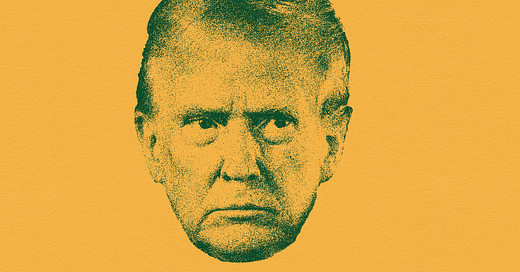Letting Trump's Words Speak for Themselves
The Washington Post ran Trump's rambling response to a question verbatim. It was brilliant.
Covering Donald Trump has always been a bit like trying to nail Jell-O to a wall. His rambling, often nonsensical answers to straightforward questions present a challenge for journalists: How do you report on what he says without inadvertently making it sound more coherent than it is? Too often, the media falls into the trap of "sanewashing"—editing his…
Keep reading with a 7-day free trial
Subscribe to The Present Age to keep reading this post and get 7 days of free access to the full post archives.




